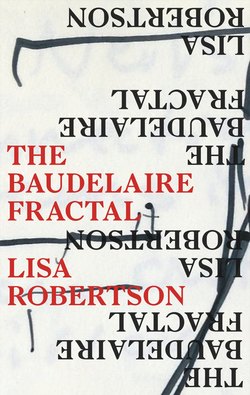Читать книгу The Baudelaire Fractal - Lisa Robertson - Страница 7
На сайте Литреса книга снята с продажи.
ОглавлениеRaised from babydom into doubt, I’m as feminine as Rousseau. I, Hazel Brown, eldest daughter of a disappearing class, penniless neophyte stunned by the glamour of literature, tradeless, clueless, yet with considerable moral stamina and luck, left my family at seventeen to seek a way to live. It was the month of June in 1979. I was looking for Beauty. I didn’t exactly care about art, I simply wanted not to be bored and to experience grace. So I thought I would write. No other future seemed preferable. Let me be clear: I did not want to admire life, I did not want to skim it; I wanted to swim in it. I judged that to do this, I had to leave, and to write. I wanted to speak the beautiful language of my time, but without paying.
I myself was not beautiful. Moody, angular, both dark and pale, of bad posture, for I was perpetually thrust forward as if rushing into time, awkward whilst being observed, a half-broken tooth in my reluctant smile, uncertain in manners, premature frown lines between my grey-green eyes, all of this magnified by an urgency with no recognizable context: comedic in short, in the mode of a physical comedy.
Prodigal, undisciplined, with an aptitude for melancholy, I left houses, cities, lovers, schools, hotels, and countries. I left with haste, or I left languidly. Also I was asked to leave. I left languages and jobs. Leaving made a velocity. I left garments, books, notebooks, and several good companions. Sometimes I left ideas.
After the leaving, then what? I suppose I would drift. I had no money and no particular plan. Cities exist; hotels exist; painting exists. Tailoring also, it exists, as anger exists, mascara exists, and melancholy, and coffee. I liked sentences and I liked thread. Reading surely and excessively exists; also, convivially, perfume and punctuation. I had a fantasy and my diary. I had my desire, with its audacity, its elasticity, and its amplitude. I carried a powder-blue manual Smith Corona typewriter in a homemade tapestry bag. I was eager, sloppy, vague. I wore odd garments. I carried no letter of introduction, and I knew no one. I was only a girl bookworm. I wasn’t to stay. None of this troubled me much.
The nervous fluid of a city is similar to a grammar or an electric current. Loving and loathing, we circulate. I myself did not exist before bathing in this medium. Here I become a style of enunciation, a strategic misunderstanding, a linguistic funnel, a wedge in language. Here I thought I’d destroy my origin, or I did destroy it, by becoming the she-dandy I found in the margins of used paperbacks. What do I love? I love the elsewhere of moving clouds.
Reading unfolds like a game called ‘I,’ in public gardens in good weather, in a series of worn-down hotel rooms, in museums in winter, where ‘I’ is the composite figure who is going to write but hasn’t yet. If I am not alone in these rooms, if I could be known, it would be by the skinny red-haired street singer, the secretary of Cologne in her ironical cast-off dress, the hard-shod horsegirls neighing in the dark apartment, by similarly hybrid she-strangers and foreigners, any girl with the combined rage of lassitude and complicity. They are blazons. Cool threads of anger bind me to them. We cease to be human. We’re neutral, desituated clouds. There is nothing left to fear. This realization is a vocation.
My name is Hazel Brown.
